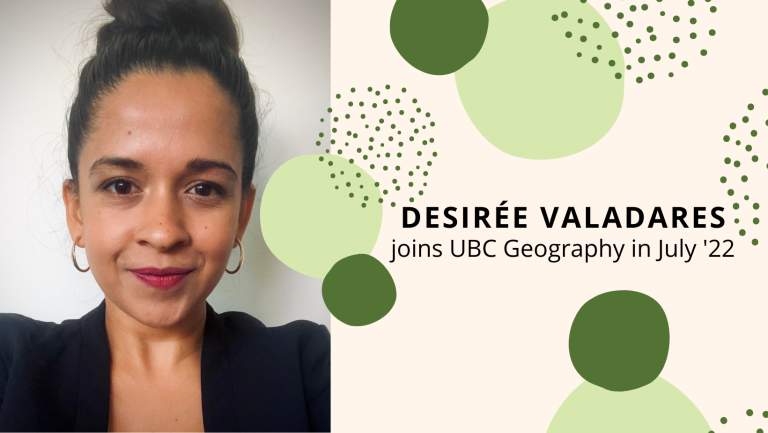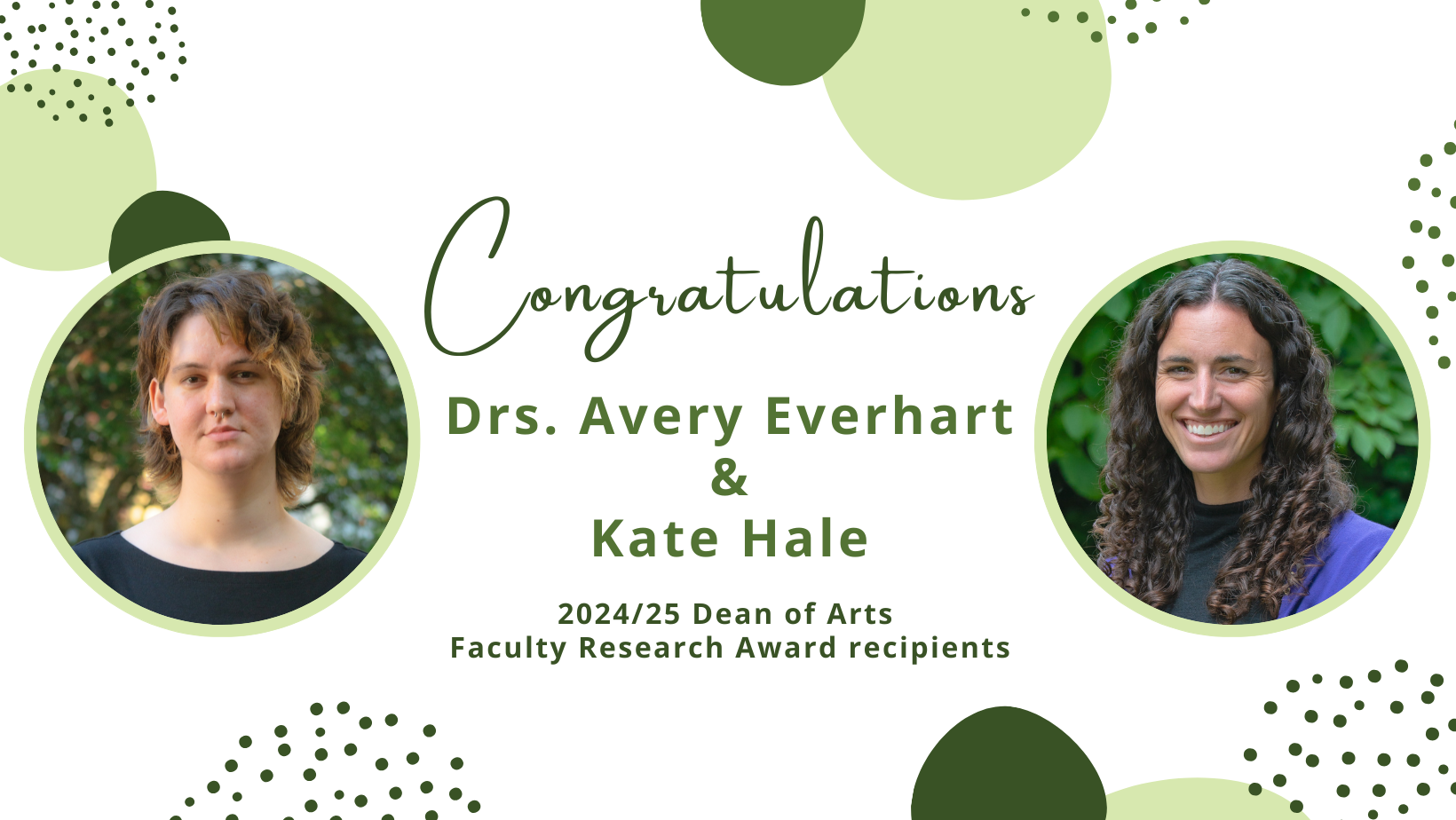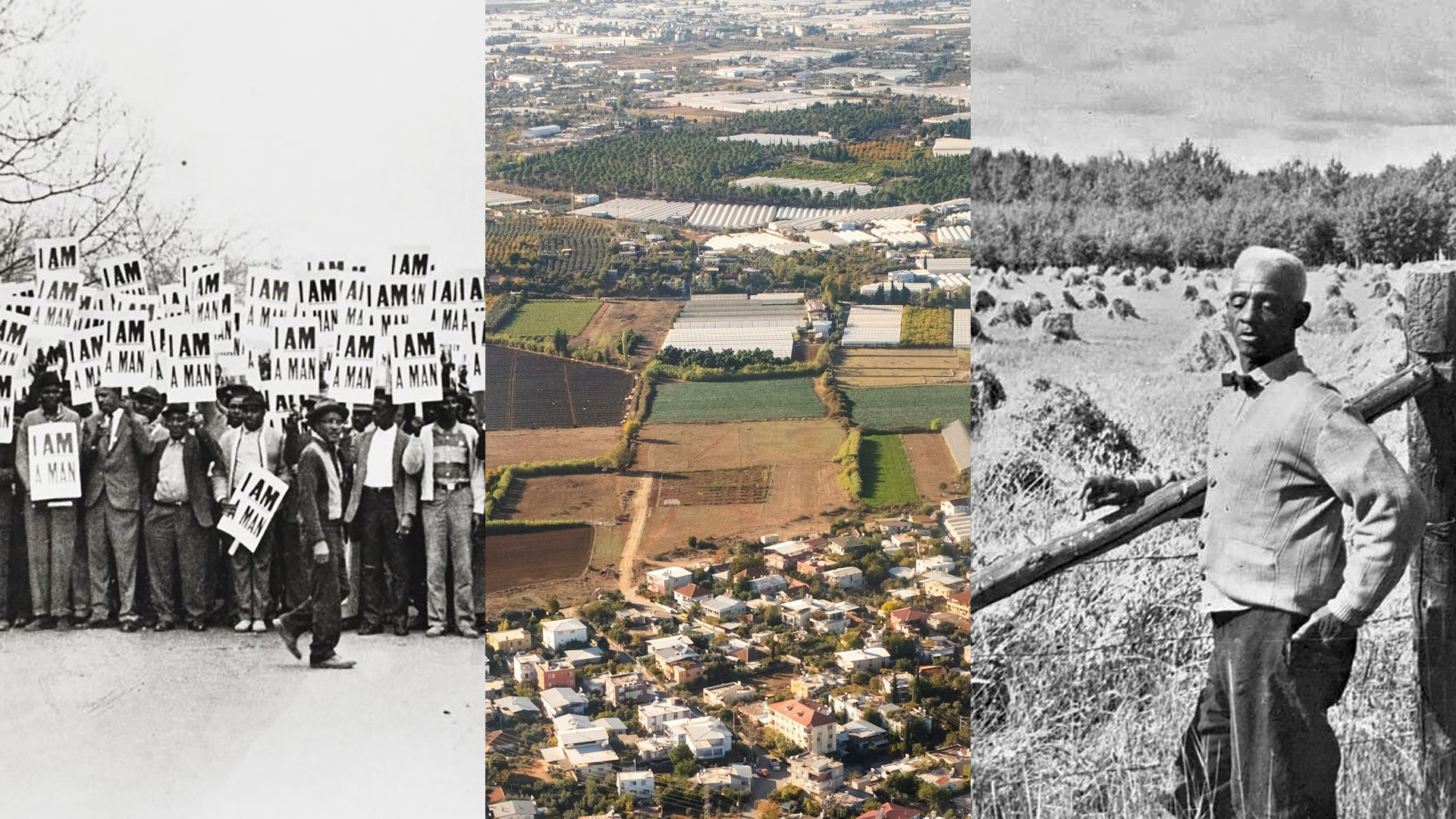

Desirée Valadares joins UBC Geography as Assistant Professor, Geographies of Settler Colonial Canada in July 2022.
Trained as a landscape architect and architectural historian, she is currently finishing her PhD at UC Berkeley. Her research and teaching focus on the aftermath of wartime confinement in Canada and the non-contiguous US.
Can you tell us a little about your academic journey so far?
I would describe myself as someone who is quite curious and intellectually restless. Landscape architecture was a field that combined my interest in arts, science and design — and it helped productively channel my creative energy!
I was drawn to this profession because it felt very optimistic; it creates new worlds and imagines new conditions of possibility. Architecture school and my time in professional practice made me think deeply about how a space is produced, how it is experienced, and how the rules that govern a space are forged and contested. This way of thinking has a lot in common with geography.
During my doctoral education, I enrolled in seminars in critical ethnic studies, in art and cultural property law, legal history, and environmental history. I was challenged in these spaces, and my experiences as an interloper were humbling! Venturing beyond my primary discipline taught me about the gaps in my own knowledge and exposed my own biases. Berkeley’s interdisciplinary environment instilled the importance of developing a research question and following that question beyond a single discipline or methodology. It helped me articulate my ideas and make connections in my research in new and unexpected ways. I am excited for Geography to be a home from which I can pursue my interdisciplinary research, continue to read widely and cultivate a network of support in academia and the wider community outside the university.
What are your current research interests?
I am interested in intersectional histories of place and heritage politics. I focus on issues of land, territory and empire in Canada and the non-contiguous US, and study Asian North American and Indigenous relations in the transpacific.
In my teaching and research, I use an oceanic or hemispheric perspective that transgresses beyond national borders. Instead, I aim to consider disparate geographies and populations that are typically not considered in relation to each other. For example, in a current article, I am writing about the US Minor Outlying Territories and their connections to Canada. In another article, I am writing about Asian racialization in the Pacific through a migration and labour history of cane fields in Hawai’i and canneries in Alaska and British Columbia.
When did you first encounter geography, and become interested in it?
I grew up in India, where I lived until I was 11 years old. In primary school, geography was a compulsory subject in the social sciences. I recall colouring maps, labelling capital cities, as well as learning about the diverse physical and cultural history of states and union territories beyond my home state, Maharashtra.
When I moved to Canada in 2000, I noticed that geography was not a required field. In grade 8 geography, we spent a lot of time on the physical geography of Canada. In high school, geography was an elective class that you could take once in your four years.
I’m interested to know how provincial geography curricula at the elementary and high school levels have evolved. I am excited about the prospect of training future school teachers who typically enrol in the undergraduate Geographies of Canada stream to think more critically about pressing issues from Indigenous sovereignty, climate justice, immigration reform and white nationalism, to name a few.
You’ve lived, and experienced the education system, in four different countries; India, Canada, Scotland and now the United States. How do you feel that has informed your work?
I draw on my own positionality, and what it means to be a person who has arrived from a post colonial state to a settler colonial state. It is important to sit with feelings of restlessness and non-belonging, and also interrogate one’s own complicity in settler colonial structures.
I also think about how we are perceived in different ways, in different spaces. I came to Canada as an immigrant with my family, moved through the permanent residency process, and attended my citizenship ceremony in my first year of undergrad while at McMaster University in 2005. I remember returning to a decorated dorm room. My floormates made a really big deal out of it!
While studying in Scotland for an exchange term in 2012 and living in the US for the last six years, I found myself in a liminal legal position as an international student. My US papers classified me as a “nonresident alien.” Due to my status, I was frequently questioned at borders and often asked if I spoke English or if I was travelling with a parent/guardian (I’m 4 foot 11”!).
In my early 20s, I worked in arts and cultural institutions in Toronto and Montreal with refugee, migrant and asylee children. My interactions with newcomer populations as well as movements such as ‘No One is Illegal,’ helped me question the imagined spaces of borders and notions of citizenship, given its fraught relationship to Indigeneity. It also made me interrogate concepts of migration and mobility and the freedom to move within and beyond national borders– given that my current project is focused on the aftermath of wartime forced relocation.
More generally, living abroad opened my eyes to the way people interact with land and national heritage, especially given today’s debates around memorialization and commemoration. During my travels, I grew interested in how the built and natural environment are produced and shaped by much larger dynamics like racial capitalism, colonialism, imperialism, militarism, in addition to a whole host of other -isms. I am inspired by transnational and international social movements that draw attention to these larger dynamics and work toward justice through repatriation and reclamation.
What are you currently working on?
I am currently working on a few projects. The first is my dissertation which is a transpacific study that focuses on the preservation of former confinement landscapes in Alaska and Hawai’i and in interior B.C along Highway 3. Another project is a photographic exhibition of wartime infrastructure narrated through oral histories by demilitarisation activists, scholars, and artists. I’ve also just wrapped up a stint with the National Park Service – Pacific West Regional Office where I worked alongside a small team of professionals and community members on a policy and design document that will guide the master planning of an existing national historic site in Hawai’i.
What are you looking forward to in your first year at UBC?
I am looking forward to meeting UBC Geography coworkers and colleagues in person. There are many staff, faculty, sessional instructors, postdocs, grad and undergrad students that I did not meet during the hiring process! I am thrilled to be developing two undergraduate courses; one on oceanic geographies that is focused on migration, diaspora and mobility and the other in the Canadian geography stream called “Constructing Canada.”
I am also looking forward to collaborations with the Asian Canadian and Asian Migration Studies program, the Institute for Critical Indigenous Studies, the Public Humanities Hub, and SALA – School of Architecture and Landscape Architecture! Beyond campus, I am excited to forge connections with activist organisations, historical societies, and migrant justice coalitions in Vancouver to contribute my skills and resources as best I can!


